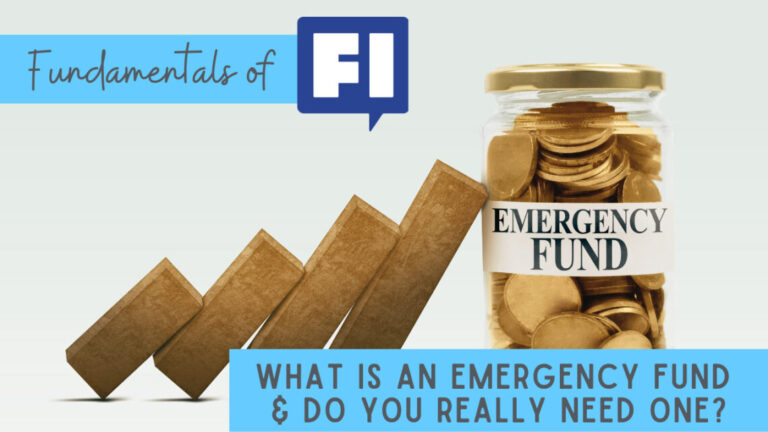Taking control of your life is one of the most vital mindset shifts for achieving Financial Independence (FI). Adopting an internal locus of control means realizing your own power to shape your destiny instead of blaming external circumstances.
The Power Mantra
The phrase “control what you can control” captures this empowering mindset. Focusing on aspects you can influence leads to intentional choices that improve your life. This is particularly relevant in managing taxes and fees.
Strategies to Lower Your Liability
Many people feel helpless when dealing with taxes, yet there are methods to reduce your tax liability significantly. Utilizing tax-deferred accounts like 401ks and IRAs lets you control your tax rate and minimize what you owe.
The Power of Contributions & Standard Deductions
Contributing to pre-tax accounts can significantly lower your taxable income, offering control over your tax rate. When couples max out 401k contributions, it results in substantial deductions. Additionally, standard deductions further decrease your taxable income.
The Hidden Traps in Your Expenses
Unnecessary bank fees, credit cards, and overdrafts can affect your finances. Being aware of your spending habits and choosing fee-free options can save you significant money over time.
Control Fees to Maximize Returns
High investment fees can erode your returns and diminish your net worth. By choosing low-cost investment options, you protect your long-term investment growth.
Embrace Passive Investing
The podcast emphasizes the importance of keeping fees low in investments and suggests matching the market through low-cost index funds. This passive strategy can lead to long-term financial success without active management.
Own Your Financial Future
Taking control of your life isn’t about predicting the future or controlling external factors. It’s about recognizing where you do have influence and making choices to improve those areas. By focusing on controllable aspects like taxes and fees, you make significant strides towards financial independence.
The Bottom Line
The mindset shift towards internal control enables you to own your financial future and improve your well-being. Begin your journey today by taking control of what you can, and watch your life transform for the better.
Video Transcript
One of the most important mindset hacks on the path to FI is taking control. Okay. So, this is what we call an internal, focus of control. It’s not that some external force is acting on you. Some elusive. “They,” right? How often do you hear people say? “Oh, they did this to me. They did that to me,” right? A lot of people feel that way. They feel that their life is not under their control and that things have spun out of control. But one of the fundamental pieces, psychologically on the path to FI, you can exert control over your life.
Okay, so it’s internal, and when you start seeing that come to reality, when you start making changes that move you forward, that make life better that make your net worth slightly more positive, right? And give you that little bit of space. So, you’re not so stressed mentally anymore. Then you understand. Okay, I have control over this and one of the phrases we love is “control what you can control.” One of the ways that we see this come to fruition most is through taxes and fees, and we do have other videos, obviously both on taxes and fees here in the FI fundamental series, but just in terms of a very broad sense of people don’t think they have any control over taxes, right? It’s so Uncle Sam Hits me with this or I pay too much in taxes, you know? Grumble, Grumble, Grumble, right? Like, it’s so easy to otherize it in terms of their impacting me, but the beautiful thing is that you actually have a significant amount of control over what federal income tax you pay.
Okay. Now for many of us making, let’s say $100,000 or less which is still a fantastic, fantastic income right? Even just putting some money into your 401k. That’s one of the biggest ways to exert some control over your taxes is and how much tax liability you owe is by putting money into these pre-tax buckets, right? These tax-deferred accounts like a 401k or 457 or 403b, Traditional IRAs, the HSA, and the health savings account, right? These all give you tax deductions today. So again, it’s control what you can control. So, it’s not. Hey, I have no control over what the tax rate is going to be 20 years from now or 50 years from now, or what Congress is going to do in the intervening time, but I know.
Okay. What is my marginal tax bracket? What is what is that tax? I’m going to pay on the next dollar of my income and if I can put some money into one of those tax-deferred accounts and that actually reduces my taxable income, right? So that is, I am controlling in essence, my tax rate, especially when you’re talking about, let’s say, two spouses who are maxing out a 401k at nearly $20,000 each, right? You’re talking potentially almost $40,000 worth of deductions. Now, you add on top of that. The standard deduction, you get, just the federal government gives you, which is over, I think this year for 2021, it’s over, $25,000 for married filing joint.
So, you’re talking about somebody with $100,000 combined income, who gets a $25,000 standard deduction. Now, I’m rounding of course, but that gets you down to 75 thousand dollars of taxable income and then take $40,000 off of that for potentially tax-deferred accounts. You’re down to 35 thousand dollars of taxable income, which means your tax liability, or federal tax liability, is going to be a couple of thousand dollars at most right on a hundred thousand dollars of income. So, a couple thousand means the effective tax rate that you pay on that entire amount of income. If you look at it in totality is going to be two, three or four percent, right? Now compare and contrast that with oh, I’m taxed enough already or you hear all these people just complaining about taxes it’s because they don’t know, they don’t understand.
How it works. A and B that you have so much control over this. That’s so that’s one side. Another side that we look at. Again. This is a mental framework. But just to give you another concrete example is expenses, right? And fees, fees. So many people pay fees is all the time and you see this in terms of bank fees, overdraft fees, credit card fees, all of this stuff. Any time you’re doing something. We’re just not paying attention; you’re paying a convenience fee is right. You hear that all the time. ATM fees because you’re too lazy to get cash out at your own bank, right? Those fees you can control and you certainly can control the fees on your investments. Now we go into great detail on this on compounding and how this works and just how critical it is to control the fees because it can amount to really potentially losing. If you invested with an investment advisor, I would say 1% assets under management fee. It sounds like nothing, right? It’s one percent.
And then you pay and get a fancy mutual fund, that’s actively managed. That’s another 1% in fees. Again. That’s 2% and you’re getting a great financial advisor. You’re getting an actively managed mutual fund. Right? Well over the long term. It’s almost unlikely to impossible that they’re going to outperform the market. So over 50 years, very, very unlikely, but you’re paying that 2 percent every year. That’s going to cost you almost 50 percent of your net worth when compounded over 40 to 50 years, 50 percent just from those tiny little 1% fees to each of them. So, what I look at and say is okay. I can’t control beating the market. I can’t control finding that one. An amazing investment advisor or that one amazing mutual fund that’s going to just buy basically freak chance, outperform the market, right?
Freak chance in me finding them, but what I can control is maybe I can just buy the market. I can buy a broad base index fund that has a tiny little expense ratio. Let’s say, a couple of them call them basis points. It’s a hundredths of a percent. So let’s say four basis points would be point zero four percent. Okay. Now we’re talking about something now, we’re talking about only losing a couple of percent of your net worth over 40 to 50 years and again, I’m just trying to match the market because I can control those fees. So, these are just really important ways to look at the path to FI mentally. What can I control? What can I move to my side of the ledger where I can say? Alright, I have an impact on this. I’m not going to let some other “they” impact me.”



